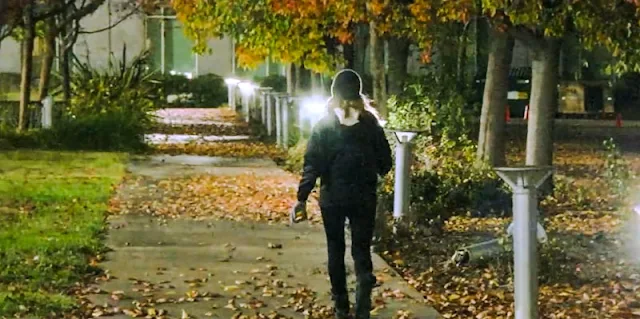PLUM, WESTERN PENNSYLVANIA, USA-NEWS AND COMMENT: Plum is a borough in Allegheny County in the US state of Pennsylvania. The administrators have taken that big step in interfering in cat ownership and feral cat care. They want to manage cats and until now pretty well anywhere on the planet, domestic and feral cats are generally unmanaged. They have extraordinary freedom of movement. Domestic cats can't trespass. This is in contrast to dogs but dogs are more dangerous than cats.
 |
| TNR volunteer, File photo. |
I sense, reading the cat news as I do on a daily basis, that local authorities are enacting bylaws i.e. local ordinances to manage both feral and domestic cats within their jurisdiction. This indicates a general trend towards tightening up domestic cat ownership to improve standards in conjunction with attempts to reduce the number of feral cats in a community.
The local authority has created a new law which stops residents from taking care of feral cats on their property. The underlined words are very important because they protect TNR programs. And cat hoarding is strictly prohibited. And they going to make it illegal for any cat owner to allow their cat to run free outside the boundary of their property unless they've been sterilised. And the cat must be inoculated against rabies. Interestingly, my reading of this new law indicates that domestic cats must be ear tipped if they are allowed outside to indicate that they have been sterilised and immunised.
Ear tipping which is the cutting off of the tip of the left ear is exclusively carried out on feral cats when they are part of a TNR program and they have been sterilised and sometimes vaccinated and then return to where they came from.
The council voted 6-0 to make it illegal for anyone to provide food and water or any other form of sustenance to stray, feral, free-roaming or homeless cats or dogs. And it will be illegal to allow any other person to engage in such activities on their property. Well, my reading of that seems to state that it does not forbid TNR programs on public property. This seems to be correct because I think this council wants to be involved in TNR programs, which by the way is the best way to do things. When the local authority is involved in TNR it gives those programs a status and a moral authority which encourages others to leave them alone and let volunteers get on with the work.
This law would seem to protect the regular TNR programs on public land which are very popular among many people in America because they actually work to stabilise the feral cat population in many communities. There is currently nothing better in terms of stabilising feral cat numbers. Although, detractors will always criticise TNR arguing that it is too slow and it puts feral cat back on the street where they came from to do what they been doing before which is spread disease and be a nuisance to residents. They forget that the citizens of America put them there in the first place but that is another story.
Anybody in violation of this new ordinance could face a fine between $100 and $1000 and may even be sentenced to a jail term.
There has been a general resistance to this law. There was an attempt to bring it into action in 2018 but there were objections on the basis that it would be unfair.
The original reporting is not great as it leaves so aspects of the story unclear. If you can clarify or add please leave a comment.

No comments:
Post a Comment
Your comments are always welcome.
Note: only a member of this blog may post a comment.